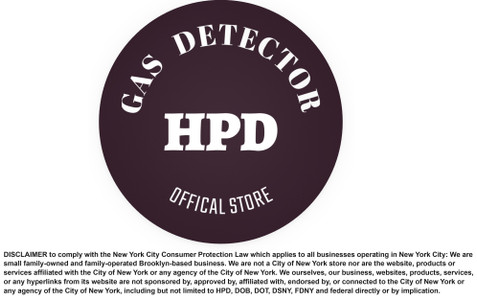Are Natural Gas Detectors Worth It? The Importance of Installing Gas Detectors
Natural gas is a common energy source used in homes for heating, cooking, and powering various appliances. While it is generally safe when used correctly, natural gas leaks can pose significant dangers, including fire, explosions, and health risks. This makes the installation of natural gas detectors not just a precaution, but a necessity. Here’s a detailed look at why natural gas detectors are worth the investment and why installing them is crucial for your home’s safety.
1. Early Detection and Warning
Natural gas detectors are designed to sense the presence of gas in the air and alert you before the gas reaches dangerous levels. Early detection is critical because natural gas is highly flammable and can ignite with just a small spark, leading to fires or explosions. A natural gas detector provides an immediate alert, giving you and your family time to evacuate the premises and call for emergency assistance before a small leak becomes a major disaster.
2. Health Protection
Exposure to natural gas can have serious health effects. Even low levels of natural gas can cause symptoms such as headaches, dizziness, nausea, and fatigue. High levels can lead to more severe health issues, including asphyxiation, which can be fatal. Natural gas detectors help protect your health by detecting leaks early and providing an audible alarm, allowing you to address the problem before it poses a significant health risk.
3. Prevention of Fires and Explosions
Natural gas leaks are a leading cause of home fires and explosions. Gas that accumulates in enclosed spaces can ignite from a simple spark or flame, causing extensive damage to property and posing a serious risk to life. By installing natural gas detectors, you significantly reduce the risk of such incidents. The detectors alert you to the presence of gas before it reaches an explosive concentration, allowing you to take preventative action.
4. Compliance with Local Regulations
In many jurisdictions, including New York City, the installation of natural gas detectors is required by law for certain types of buildings. For instance, New York City’s Local Law 157 mandates that buildings with three or more dwelling units must have gas detectors installed in areas where gas appliances are used. Compliance with these regulations is essential to avoid fines and legal issues, but more importantly, it ensures the safety of all building occupants.
5. Cost-Effective Safety Measure
The cost of installing natural gas detectors is relatively low compared to the potential cost of damage from a gas leak. Fires and explosions can cause extensive property damage, leading to costly repairs and rebuilding efforts. Additionally, medical expenses from health issues caused by gas exposure can be significant. Investing in gas detectors is a cost-effective way to prevent these potentially high expenses by providing an early warning system.
6. Peace of Mind
Knowing that your home is equipped with natural gas detectors provides peace of mind. You can rest easy knowing that you have a system in place to detect gas leaks promptly, reducing the risk of accidents. This sense of security is particularly important if you have vulnerable family members, such as children, elderly relatives, or pets, who may be more affected by gas leaks.
Tips for Installing and Maintaining Natural Gas Detectors
- Proper Placement: Install gas detectors in key areas of your home, such as kitchens, basements, near gas appliances, and in any rooms where gas heaters are used. Follow the manufacturer’s recommendations for optimal placement.
- Regular Testing: Test your gas detectors monthly to ensure they are working correctly. Most detectors have a test button for this purpose.
- Battery Replacement: Replace the batteries in your gas detectors according to the manufacturer’s guidelines. Some detectors come with sealed batteries that last several years, while others may require annual replacement.
- Education: Make sure all household members know what the gas detector sounds like and understand the steps to take if it goes off. This includes knowing how to evacuate the home safely and where to call for emergency assistance.
- Maintenance: Keep your gas detectors clean and free of dust, which can affect their performance. Replace detectors as recommended by the manufacturer, typically every 5 to 7 years.
Conclusion
Natural gas detectors are a critical component of home safety. They provide early detection of gas leaks, protect your health, prevent fires and explosions, ensure compliance with local regulations, and offer peace of mind. Given the relatively low cost of these devices compared to the potential risks and damages from a gas leak, the investment in natural gas detectors is undoubtedly worth it. By installing and maintaining gas detectors in your home, you can create a safer environment for you and your loved ones.
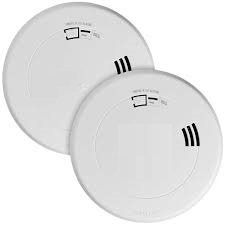
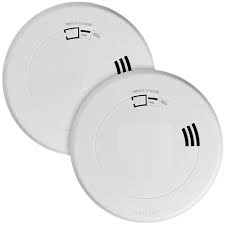
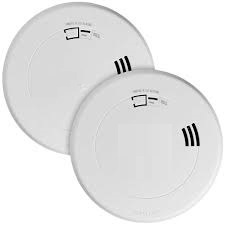
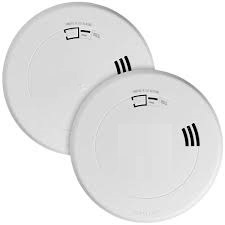
DISCLAIMER to comply with the New York City Consumer Protection Law which applies to all businesses operating in New York City: We are small family-owned and family-operated Brooklyn-based business. We are not a City of New York store nor are the website, products or services affiliated with the City of New York or any agency of the City of New York. We ourselves, our business, websites, products, services, or any hyperlinks from its website are not sponsored by, approved by, affiliated with, endorsed by, or connected to the City of New York or any agency of the City of New York, including but not limited to HPD, DOB, DOT, DSNY, FDNY and federal directly or by implication.
DISCLAIMER These codes may not be the most recent version. The State / federal or other regulation department may have more current or accurate information. We make no warranties or guarantees about the accuracy, completeness, or adequacy of the information contained on this site or the information linked to on the state site. Please check official sources.
The requirements for detector are determined by intended use and by applicable regulation. The BUYER is responsible for determining the appropriate detector needed. WE makes no warranty or representation of suitability of a detector to any code or for any specific application. IT IS THE CUSTOMER'S RESPONSIBILITY TO ENSURE THAT THE DETECTORS THE CUSTOMER ORDERS ARE IN COMPLIANCE WITH ALL STATE, FEDERAL, LOCAL, AND MUNICIPAL LAWS. Please review terms and conditions prior to purchase.
For more information about what is required, see the laws that are referenced and the rules applicable to your city and state. This page is for informational purposes only and is not intended as legal advice, professional advice or a statement of law. You may wish to consult with an attorney.
